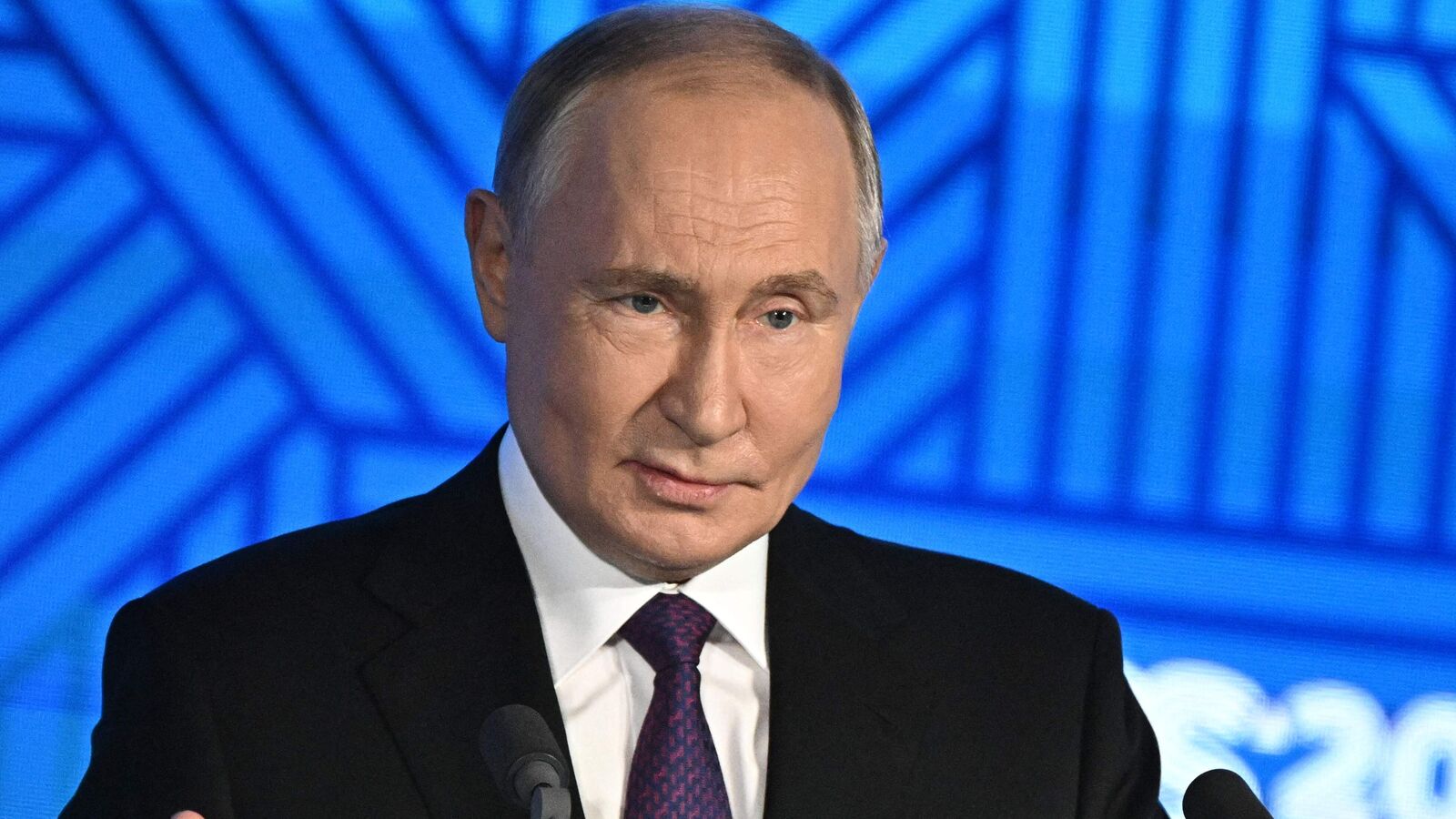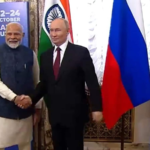The Foreigners Fighting and Dying for Vladimir Putin
In a world where conflicts are sometimes overshadowed by politics, we find ourselves intrigued by the phenomenon of foreign fighters joining the ranks of the Russian military. We all know that wars are fought with bullets and bravery, but there is an entire human story that unfolds behind these headlines. This article aims to explore who these foreign fighters are, why they choose to risk it all for Vladimir Putin, and what it means for the global landscape.
Who Are These Foreign Fighters?
When we hear the phrase "foreign fighters," we might think of tough-looking soldiers with intimidating expressions. It’s natural, right? After all, they are often portrayed as mercenaries or zealots. But peel away those dramatic layers, and you’ll uncover a more complex human narrative.
Diverse Backgrounds
Many foreigners have trekked thousands of miles to fight for the Russian cause. They can range from veterans of other conflicts, adventure seekers, young men with questionable ideals, and sometimes even those simply looking for a paycheck. Trolling the forums, we’ve found fighters hailing from countries like Syria, the United States, and even as far as Brazil. Each has his own story, viewed through an individual lens of belief, loyalty, or even sheer desperation.
Motivations to Fight
Trying to understand their motivations can feel like an awkward family gathering—everyone’s got their reasons, but no one really wants to share! Some join for the adventure, others for ideology. As one foreign fighter, a self-identified “free spirit,” put it, “I just wanted to see the world, but it seems like I keep ending up in its darkest corners!” Who could blame him?
The Appeal of Putin’s Leadership
Vladimir Putin is not just any leader; he is a complex figure who inspires loyalty in unexpected quarters. If there is one thing we’ve come to grasp, it’s that his charismatic aura can sometimes leave us scratching our heads.
Charismatic Leadership
Perhaps it’s his impressive judo skills or his knack for riding bears (okay, maybe we’re exaggerating a bit here)—there is something about Putin that draws people in. According to the Russian government, his image is crafted as that of a strong protector of traditional values, reflecting a yearning for stability that some find compelling.
The "Us Against Them" Mentality
Putin is a master at exploiting the "us versus them" narrative. Many foreign fighters resonate with the notion that they are part of a larger struggle against perceived threats. Whether it’s against Western influence or the idea of defending Russian-speaking peoples, this narrative can serve as a significant motivating factor for joining in.
“In this crazy world, we need to protect our own,” one fighter quoted from a mantra that went viral in many online communities.
The Roles Foreign Fighters Play in the Conflict
It’s easy to assume that these foreign fighters wield guns and bombs. While that’s somewhat accurate, their roles are varied and often more nuanced.
The Rambo Effect
Some come in swinging like Rambo, but not all are cut from the “action hero” cloth. A surprising number contribute in logistics, communication, or cybersecurity. Imagine a group of coders joining a war effort—not because they’re good at hand-to-hand combat, but because they can hack enemy lines.
The Human Element
For many, personal connections drive their desire to participate. Some have relatives in conflict zones; others feel a calling spurred by friendships formed over social media. Many of these fighters fervently advocate for those who share their views, helping disseminate propaganda like digital soldiers on the frontline.
Legal and Ethical Dilemmas
When we delve into discussing the legalities, the waters become muddy as we navigate through ethics, responsibilities, and international laws.
The "Mercenary" Label
The legal categorization of foreign fighters varies. Some are outfitted and recognized as mercenaries, which can expose them to severe penalties under international law. Imagine sporting an “I’m-down-for-anything” badge when what you really want is just a selfie in front of an ancient mural.
Ethical Quandaries
The decisions these foreign fighters make lend themselves to ethical debates. For instance, do they bear the moral weight of their consequences, or are they merely pawns on a geopolitical chessboard? It’s a lot to chew on, and perhaps it’s wise to tread lightly as we dissect this field of inquiry.
“War doesn’t come with color-coded instruction manuals,” another fighter lamented. “And here I was, thinking I’d crack some code.”
The Impact on Global Relations
We are all players on the world stage, and foreign fighters have ramifications that ripple outward, affecting international relations.
Destabilization of Existing Alliances
As foreign fighters flock to conflicts, they can unintentionally incite distrust among nations. Alliances might take a backseat when countries feel pressured to combat opposing groups that attract foreign recruits. Kind of like that awkward moment at a party where two former friends see each other at the snack table—splitting the chips!
Diplomatic Backlash
Bringing foreign fighters to a conflict zone can invite diplomatic backlash. Nations may impose sanctions or issue travel bans on individuals who’ve participated in such actions. It’s not just an individual problem; it’s a whole diplomatic puzzle!
The Role of Social Media and Recruitment
Let’s face it: social media is a double-edged sword. Sometimes it’s used to share cute cat videos; other times, it’s a recruitment powerhouse for foreign fighters.
Online Platforms
Platforms like Telegram and Twitter have become chaotic havens for propaganda and recruitment. This ease of access allows individuals worldwide to connect, regardless of geographical boundaries. Social media also becomes a place where information can be warped—much like that game of telephone we all remember from elementary school.
The Influence of Online Communities
Niche online communities flourish, preying on disenfranchised youth exploring meaning and belonging. It creates an opportunity for recruitment, presenting the idea of being part of something transformative. However, adhering to these beliefs often leads to pursuing conflict rather than constructive dialogue. Go figure!
Training and Preparation
If you’re picturing foreign fighters scrambling onto planes with no preparation, think again. Behind the bravado lies a series of training and strategies.
Training Camps
Many aspiring fighters attend organized training camps, often outside their home countries. These camps provide skill sets that range from combat maneuvers to survival skills, ensuring that when the bullets start flying, they at least have some semblance of an idea of what to do.
Psychological Conditioning
It’s not all about muscles and army tactics; there’s also a psychological aspect. Training regimes often incorporate sessions meant to bolster mental toughness, convincing participants that they’re part of a righteous cause. It’s a bit like a pre-war pep rally, but the stakes are a tad higher than winning the school basketball championship!
The Consequences of Their Fight
In a world where the battle lines are increasingly blurred, the consequences of these foreign fighters’ actions extend beyond the battlefield.
Personal Sacrifice
Let’s not shy away from the harsh reality that many of these fighters face. Death, injury, and psychological scarring become part of their narratives, often leaving them grappling with the aftermath of their choices. Many return home shuttered and unable to reintegrate, presenting society with a complex issue of support and understanding.
The Bigger Picture
The effects of their participation can alter the course of their home countries’ politics as well. Governments may be forced to react to public sentiment stemming from returning fighters, which can lead to fruitful discussions—or heated debates that bring the proverbial thunder in a teapot.
Conclusion
Foreign fighters, drawn to Vladimir Putin’s military efforts, encapsulate a multifaceted story that isn’t black and white. Every face we see represents a multitude of motivations, backgrounds, and consequences that deserve examination. In a conflict-riddled world, we must approach this issue with keen insight and careful consideration.
Key Takeaways
- Foreign fighters come from diverse backgrounds, each with unique motivations for joining.
- Charismatic leadership and powerful narratives often draw these individuals in.
- Their roles extend beyond combat; they may serve in logistics, communication, and propaganda efforts.
- Legal and ethical dilemmas abound with participation in foreign conflicts.
- Social media acts as a double-edged sword, both facilitating connections and promoting destructive narratives.
- Training and preparation are essential components, combining physical training with psychological conditioning.
- The consequences of their actions extend to their societal reintegration and the dynamics of international relations.
Let’s be mindful that behind every headline, there lurks a story that deserves to be told—not just in terms of blood and bullets, but through the human experience of action, reaction, and the quest for understanding.
Further Reading
- Foreign Fighters: A Justification for Their Enlistment?
- The Impact of Social Media on Modern Warfare
- Reintegrating Foreign Fighters: Challenges and Solutions
And as we nod our heads in thoughtful consideration, perhaps we’re left with the understanding that the world of conflict is less about clear heroes and villains and more about individuals caught in the maelstrom of human experience.


